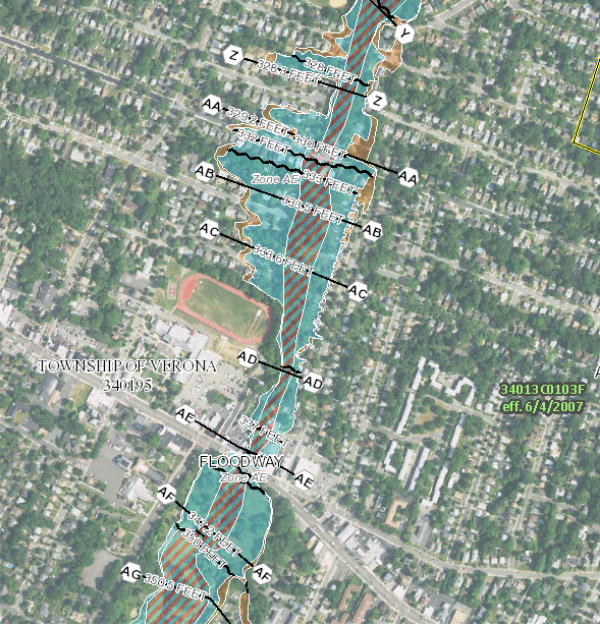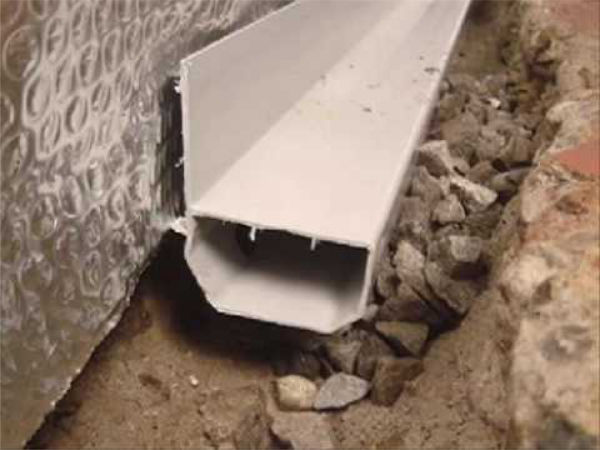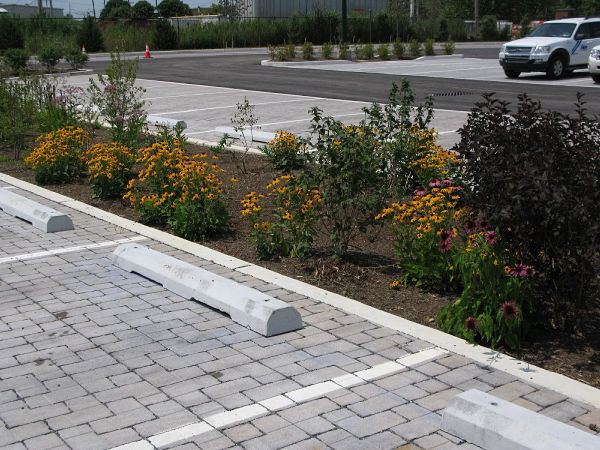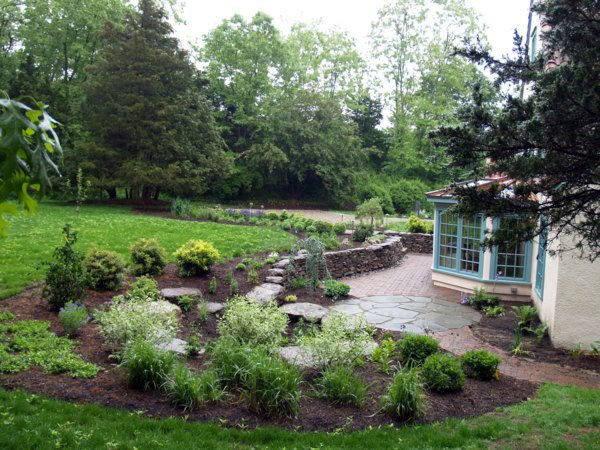
We’ve had a lot of rain in Verona this summer. Instead of the normal 4.75 inches of rain in July, we had more than 6 inches. There was more rain at the beginning of August, so that by the time the skies opened up here on Saturday, August 11, the ground here couldn’t hold any more rain and, in more than a few places, it simply gave up trying. The torrential rain–about 5 inches in just an hour–streamed downhill from Verona’s eastern and western ridges, flooding roads, houses and businesses in its way. And not just places in the center of town along the Peckman River.
It could happen again, and the damage your property avoids depends on what you do now. We talked to local construction and plumbing experts to get some tips.

Basement First: Inspect the foundation walls in your basement for cracks, seal any you find and apply a waterproofing paint. If you don’t already have a sump pump, install one. And not just any kind, says Bill LaRiccia, a long-time plumber in Verona. “Now, you have to have a pump that has a battery backup,” he says. That way, if the power fails, your pump won’t fail too. John Visentin, another Verona plumber, is partial to water jet sump pumps. Rather than rely on a battery that will eventually run out of power, the water pump uses municipal water to power the pump until the electricity comes back on.
Consider calling professionals to install a French drain. This will involve busting through the existing concrete in your basement floor and having a perforated drainage pipe installed. (It’s then covered by gravel and concrete, so you won’t have an open ditch downstairs.) Installing a French drain will cost several thousand dollars, but that could be far less than the damage a flood does.
Talk to your plumber, too, about installing a sewer check valve (also known as a backwater or backflow valve), on your home’s sewer main. This can help prevent sewage from backing up in your house if stormwater floods the municipal sewer lines. But Michael DeCarlo, Verona’s engineering manager, says residents need to understand the implications before taking this step. “By preventing water from coming back you’re also preventing water from going out,” he says. “So during a suspected flooding event people cannot flush or use any water in the home. It would have no place to go.”
Finally, flood-proof your basement decorating: Elevate whatever you can, use indoor-outdoor rugs and put critical documents in watertight containers–or in a safety deposit box at the bank.
Redirect The Rain: When heavy rain falls, a solid roof and a well-functioning system of gutters and leaders can direct it away from the inside of your house. Tom Jacobsen, who heads Verona’s construction code office, says you’ve got to make sure all your gutters and downspouts are clear of debris that could block water from flowing down. That means cleaning the gutters every fall after the leaves fall, and perhaps again in the spring if your house is near trees like maples that cast off potentially clogging seed pods. Clog-free gutters and leaders will also prevent ice dams from forming when winter comes.
Then invest in downspout extensions and splash blocks, which can redirect rainwater away from your foundation. If your downspouts are directly connected to a storm drain, think about getting them disconnected. It sounds counterintuitive, but using extensions to spread rainwater across your property allows it to naturally filter into the water table rather than immediately overload the storm drains.

Mind The Landscape: If your yard tilts toward your foundation, it will drain stormwater that way too. Jack McEvoy, a Verona Town Council member, runs a home inspection business and he says you’ve got to pitch all your landscaping–and any hardscaping from patios to driveways–away from the house. Some Verona homeowners with sloping yards have put French drains around the outside of their homes, and their in-ground pools.
If you are putting in a new patio or driveway, consider using permeable paving materials instead of concrete or asphalt. They can help rain to naturally filter into your property, instead of making a mad dash for the storm sewer.
Don’t cut down mature trees on your property unless they are diseased. McEvoy notes that the large root systems of a mature tree can absorb hundreds of gallons of water that might otherwise flood your basement. Plant new trees wherever you can; a dwarf fruit tree will give you something to eat while it soaks up the rain.
And if there is a low spot on your property that constantly turns into a water hazard, install a rain garden there. All gardens love rain, but a rain garden is developed around plants that really love to have wet roots, like birch trees and cranberries. Rutgers University, which has a website devoted to helping property owners construct rain gardens, notes that a rain garden lets 30% more water to soak into the ground than a conventional lawn. That can keep storms from overloading town storm systems. Remember that the August 11 storm sent 42 million gallons of water into Verona’s wastewater treatment plant, compared to 4 million gallons on a normal day.

Consider flood insurance: As too many residents have likely discovered by now, regular homeowners or renters insurance policies do not cover floods. But you can buy separate flood insurance, which can pay out whether or not there is an official disaster declaration. It isn’t cheap, but neither is replacing everything in your basement after a storm. The Federal Emergency Management Administration (FEMA), notes that one inch of water in a home can cause more than $25,000 in damage. Your first stop should be FEMA’s website, which has detailed maps that can assess your flood risk. But simple observations can help too. If your property sits lower than those of your neighbors, or you’ve lost a lot of big trees in your neighborhood, you could be a flood risk. According to FEMA, more than 20% of flood claims come from properties outside high-risk zones.
As climate change creates stronger storms, we will all be at greater risk of flooding. Plant trees, create a rain garden and be part of the discussion when Verona sits down to talk about new stormwater regulations.
Resources
Tom Jacobsen, Verona construction code officer: 973-857-4834
Michael DeCarlo, Verona engineer, 973-857-4804
FEMA’s Floodsmart Website
FEMA Flood Map Service Center
United States Geological Service Water Alerts
Rutgers Rain Gardens


You can also use rain barrels to collect rainwater from your downspout and use it for landscaping when the weather is dry. This helps reduce inundation.